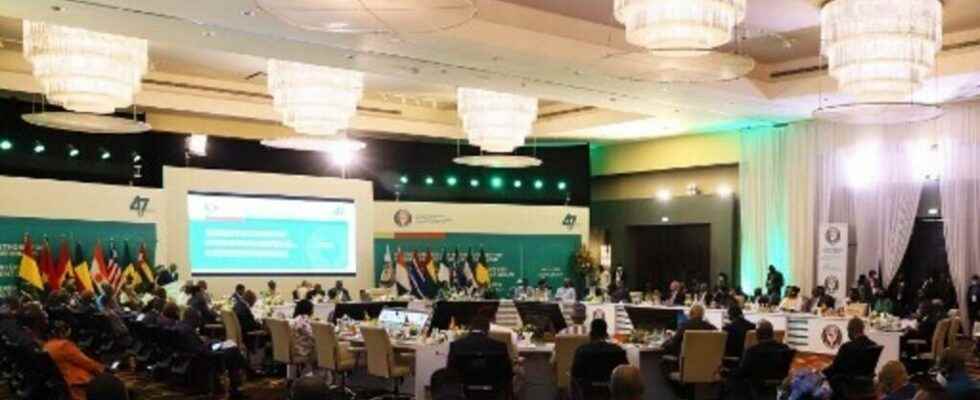The 61st ECOWAS summit ended this Sunday, July 3 in Accra, Ghana. The West African organization has looked into its retaliatory measures against Mali, Burkina Faso and Guinea after juntas seized power.
With our special correspondent in Accra, David Bache
The ECOWAS Heads of State considered that the progress made by Mali in recent weeks justifies a partial lifting of the sanctions. Bamako notably adopted a new electoral law and announced the return to constitutional order for March 2024.
These sanctions included the closure of borders, the freezing of Malian assets and the suspension of commercial and financial exchanges. All of this can resume. The ECOWAS ambassadors who were stationed in Bamako and who had been recalled will also be able to return to the Malian capital.
The financial sanctions that target the leaders of the junta are however maintained. Mali also remains suspended from ECOWAS authorities. The decisions taken this Sunday by the regional organization, with immediate effect, nevertheless constitute a very important step forward.
Burkina Faso escapes sanctions
Regarding Burkina Faso, ECOWAS has decided to lift the threat of sanctions that has weighed on the country since last March. Sanctions had been adopted, but never applied. The regional organization takes into account the report of the mediator, the former Nigerien president Mahamadou Issoufou, who reported two important advances: the two years of transition proposed by the Burkinabè authorities, instead of the three years initially announced, i.e. a return civilians in power on July 1, 2024; freedom of movement granted to ex-president Roch Marc Christian Kaboré. Like Mali, Burkina Faso nevertheless remains suspended from the bodies of the West African organization.
Guinea also escapes sanctions. At least for the moment. He was granted a one-month reprieve due to the appointment of a new mediator, in this case former Beninese President Thomas Boni Yayi. In particular, he will have to obtain a reduction in the transition period proposed by Conakry.
Guinea-Bissau President Umaro Sissoko Embalo appointed ECOWAS President
Beyond the decisions on the transitional authorities of Mali, Burkina Faso and Guinea, the 61st ordinary summit of ECOWAS held this Sunday in Accra also appointed new personalities to lead the institution, whose headquarters are in Abuja. The president of Guinea-Bissau Umaro Sissoko Emballo has been appointed current president, a new head of the commission has also been appointed to replace the Ivorian Jean-Claude Brou, as well as seven new commissioners. A Ghanaian replaces the Beninese Francis Béhanzin in political affairs for peace and security.
With our special correspondent in Accra, Jean-Luc Aplogan
Bissau-Guinean President Umaro Sissoko Emballo is the new current president of ECOWAS: the presidency went to a Portuguese-speaking country, according to the texts.
Some were reluctant because of instability in the country and even wanted the outgoing to extend his term of office by six months. But the Ghanaian Nana Addo Dankwa Akufo-Addo wanted no more: he served two terms, being obliged to convene extraordinary summits several times because of coups d’etat. A commitment that would have taken him away from the management of internal affairs, believe those close to him.
Finally the Bissau-Guinean takes command, being elected for one year: the transfer of charge followed immediately.
Shortly before the meeting, Gambian diplomat Omar Alieu Touray, 56, was appointed chairman of the commission. The vice-president is Togolese.
According to the reforms, seven new commissioners are appointed – there were 15 before. The commissioner for political affairs, peace and security is now the Ghanaian Abdel Fatau Moussa.
